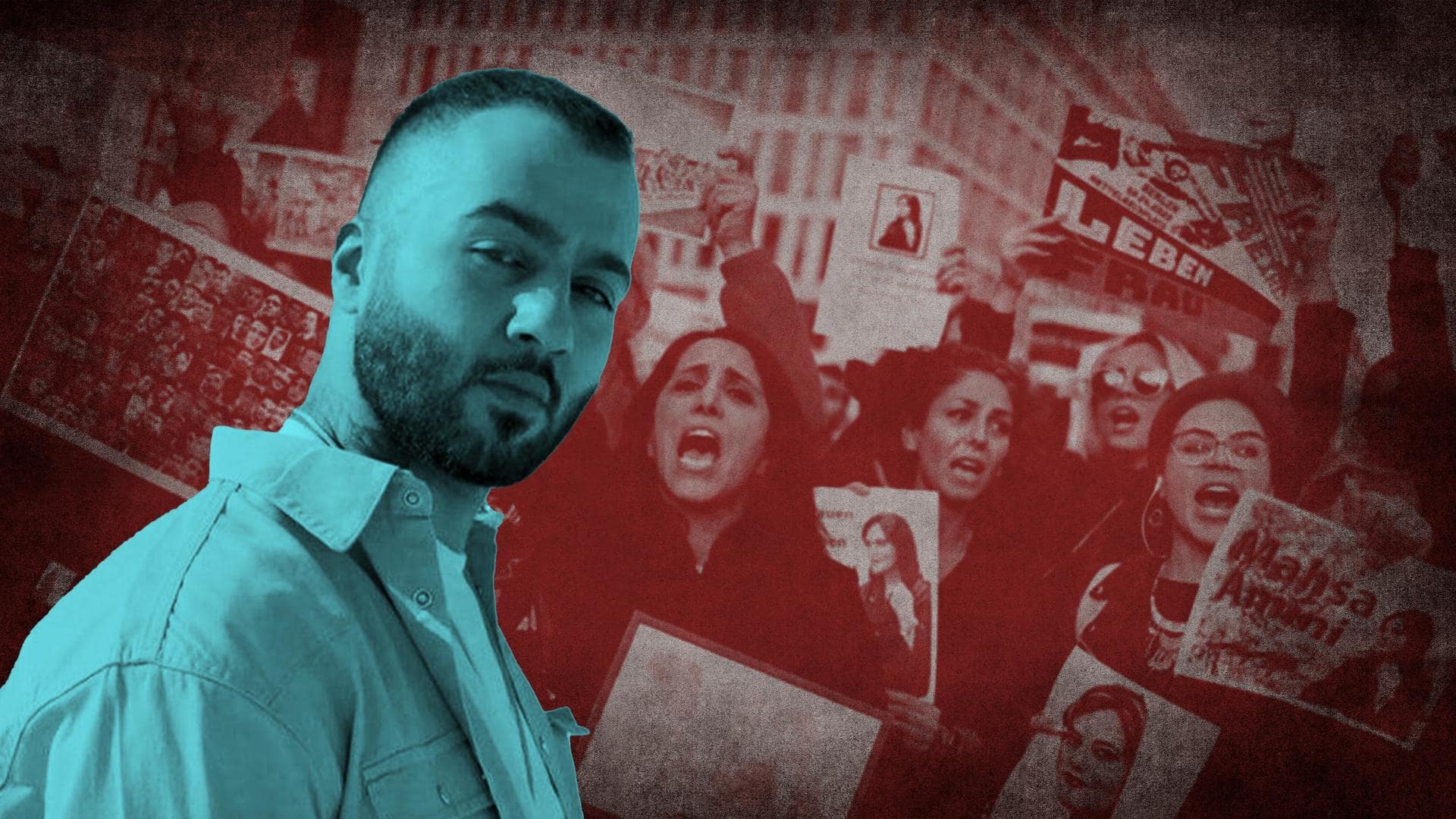
Iran anti-Hijab protests: Rapper, protester to face retrial
What's the story
The Supreme Court of Iran has ordered the retrial of two individuals, including a Kurdish rapper, sentenced to death over the anti-government protests triggered by Mahsa Amini's death, the country's judiciary stated on Saturday.
This comes just days after the country executed two men in connection with the protests earlier this month and sentenced 11 other people to death, reported news agency AFP.
Context
Why does this story matter?
Iran's anti-hijab protests gained significant momentum across the country after the death of 22-year-old Mahsa Amini in the morality police's custody in September.
Following this, women across the globe held iconic protests by cutting their hair and removing or burning their hijabs.
The movement is seen across the globe by women as a display of resilience and has generated a lot of media buzz.
Iran riots
Iran SC accepts appeal of two defendants
On Saturday, the Iran judiciary-run Mizan Online confirmed that a protester named Mohammad Ghobadlou and Kurdish rapper Saman Seydi, also known as Saman Yasin, will be retried.
"The Supreme Court has accepted the appeal of two defendants of recent riots against the verdict issued by the revolutionary court," Mizan reported, while referring to Ghobadlou and Seydi.
Context
What are Ghobadlou and Seydi's charges?
The country's judiciary did not reveal their verdicts but said that both had been charged with offenses that are punishable by death.
Seydi has been accused of "moharebeh" (enmity against God). reported AFP.
Ghobadlou has been charged with "corruption on earth" for "attacking police with a car, which resulted in the death of one officer and the injury of five others" in Tehran.
Information
Over 200 killed in anti-government protests in Iran
Thousands of people have reportedly been arrested in Iran for taking part in the anti-hijab protests. According to the authorities, more than 200 individuals lost their lives in the unrest, including scores of security forces personnel.
Death
What we know about Amini's death
Amini was reportedly arrested by Iran's morality police on September 14 in Tehran—when she was with her brother—over wearing an "improper" hijab.
Her brother—waiting outside the police headquarters—learned hours later that she was rushed to the hospital in a coma.
The police had claimed Amini suffered a cardiac arrest in custody and denied claims that she was beaten. She later died on September 16.
Info
Know about Iran's hijab law
Hijab became mandatory four years after the 1979 Iranian Revolution, which overthrew the US-backed monarchy and established the Islamic Republic of Iran.
The hijab has been a contentious matter in the country after it was made mandatory by the government.
While conservatives bat for it to be compulsory, reformists have favored leaving it to the personal choice of women.
Backstory
What is Iran's 'morality police'?
Iran established the "morality police" in 2006 under the administration of the sixth president of the country, Mahmoud Ahmadinejad.
Known as "Guidance Patrol" or "Gasht-e-Ershad," the unit was established to propagate the culture of hijab and decency.
Essentially, the morality police started monitoring women to ensure they were obeying rules like wearing a hijab and they would also arrest them for not wearing it.